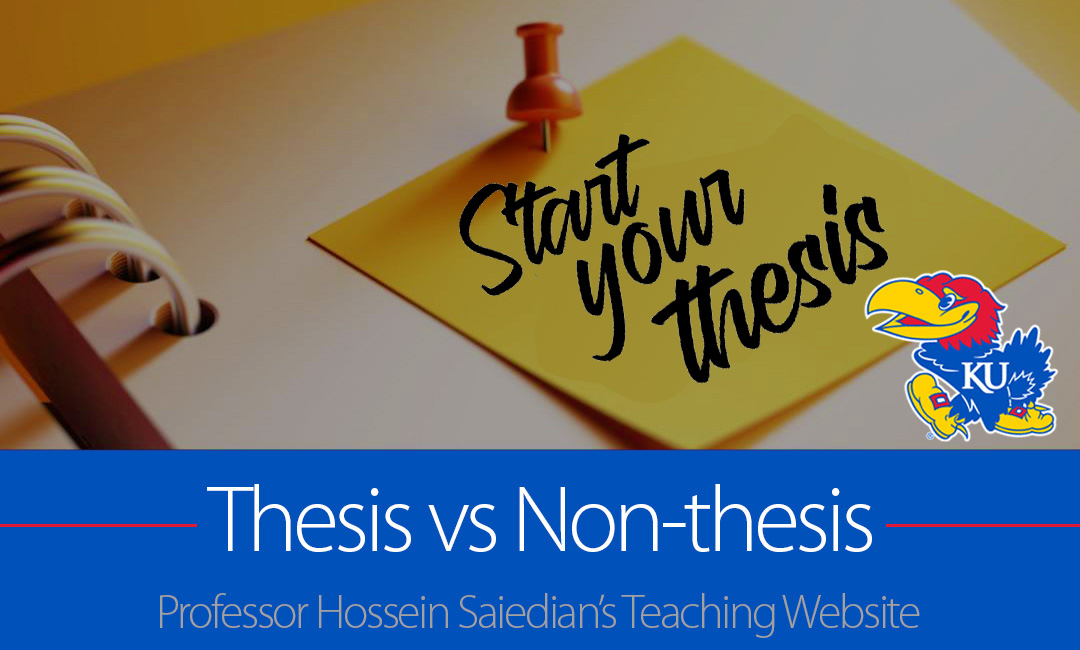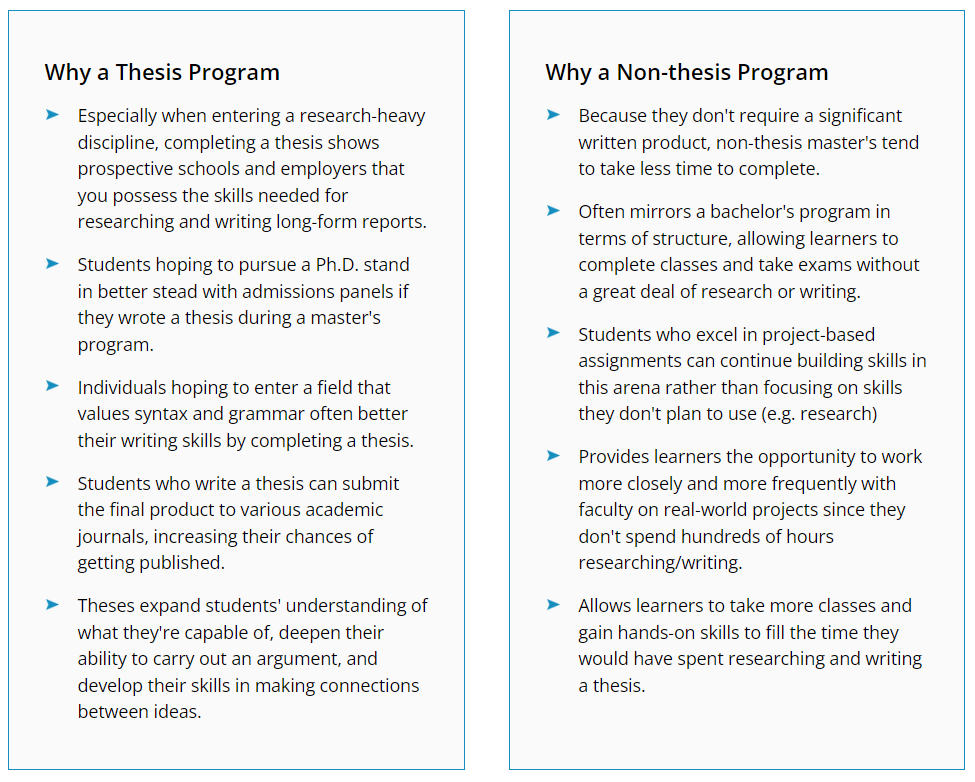Choosing between a thesis or non-thesis Master's degree
Incoming Master's students often inquire about the optimal choice between a thesis option or a non-thesis option (e.g., an MS project). The following encapsulates my responses to this common question.
- Time commitment clarification. The time commitment
for both options is comparable. Contrary to the misconception
that a thesis requires more effort or talent, both paths demand
dedication. The difference lies in the nature of the work:
a thesis path involves eight courses and six hours of thesis
work, while a project option requires nine courses and a term
project. The effort for the additional course and the project
is comparable to the time needed for a thesis. Note that each
course entails a weekly commitment of three hours of lectures,
plus additional preparation time for exams, quizzes, projects,
presentations, averaging about 10 to 15 hours per week. The
same time invested in thesis research yields excellent results.
- Research thesis impact.
A research thesis's outcomes go beyond the classroom, often
resulting in publications and conference presentations.
These contributions showcase a student's
ability to conduct independent research, enhancing career
prospects. While both options require dedicated effort, the
research thesis offers a more in-depth, hands-on experience,
preparing students for advanced academic pursuits or
research-oriented careers.
- In-depth understanding.
A research thesis delves deeply into a specific area of
computing sciences, providing a profound understanding of
theoretical principles and practical applications. This enhanced
knowledge improves one's ability to analyze, synthesize,
and solve complex computational problems.
- Communication proficiency.
It is true that a research path require effective written
and oral communication skills to present findings, defend
arguments, and disseminate knowledge. Clear communication of
complex technical concepts is crucial for success in academia
and industry. Tools like GAI and Grammarly make this aspect
of thesis writing more manageable.
- Doctoral aspirations preparation.
For students considering doctoral studies, a research-based
Master's thesis provides invaluable experience in independent
research, dissertation writing, and presenting findings. It
also facilitates networking with potential doctoral advisors
and gaining insights into doctoral research expectations.
- Lasting artifact and personal and family pride. The research
work completed as a thesis, and later potentially continued into a
Ph.D. dissertation, becomes a lasting artifact, akin to a cherished
book. Publication of the research can be even more satisfying,
and extending the Master's work into a doctoral program brings
personal and family pride.
- Flexibility and discipline consideration. For some students, especially full-time working students accustomed to a structured learning approach, a course-only option may be more suitable. Those who value academic flexibility may find the thesis option preferable. While it is feasible to plan for completing an MS thesis in a single semester, it is generally more advisable to spread the work over two consecutive semesters.
In conclusion, the attainment of your MS degree is achievable through either approach. However, it is advisable to carefully consider the aforementioned options before making a commitment to a specific path.
Updated in October 2023.

The following summary is from gograd.org:


Professor Hossein Saiedian
Electrical Engineering & Computer Science
Eaton Hall 3012
University of Kansas
1520 W 15th St
Lawrence, KS 66045-7621
+1 785 864-8812
saiedian at eecs.ku.edu